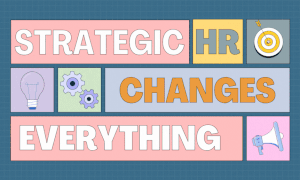
8 Tips for Using a Planner Effectively
To-do lists are great but what makes an effective planner is the ability to translate a to do list into a schedule that respects one’s wellbeing, is aligned with the purpose of your role and focuses on performing effectively. There are several apps available with great visuals to help plan your time and a lot of these are really great. But we believe in – start simple and build your time management skills step by step to see real change over a few weeks.
Using your non fancy regular calendar app is a great start – it is the discipline of recording and fitting in all tasks within a schedule that may seem the most challenging but as always with consistency and small manageable steps, these turn into great habits which becomes second nature.
Eight tips for using calendar schedule blocks effectively for time management:
1. Prioritise and categorise tasks
Start by identifying your most important tasks and categorising them based on their urgency and importance.
2. Set realistic time estimates
When scheduling tasks, be realistic about how much time each task will require. Avoid overcommitting yourself by underestimating the time needed.
3. Use different block lengths
Experiment with different block lengths based on the nature of your tasks. Shorter blocks, like 15 or 30 minutes, work well for quick meetings or simple tasks, while longer blocks, like 1 or 2 hours, are more suitable for focused work or in-depth projects.
4. Establish theme-based blocks
Assign specific themes or focus areas to different blocks. For example, you can dedicate certain blocks for meetings, creative work, administrative tasks, or personal development. This helps maintain a balance and ensures that all important areas of your work and life are covered.
5. Leave buffer time
Avoid scheduling back-to-back tasks without any buffer time. Overloading your calendar can lead to stress and reduced productivity. Allocate some breathing room between tasks to wrap up one task, take a short break, and transition smoothly to the next.
6. Schedule regular breaks
Incorporate regular breaks into your calendar. Breaks are essential for recharging your energy and maintaining focus. Schedule short breaks every hour or two, and longer breaks for meals or physical activities. Treat breaks as non-negotiable commitments to your well-being.
7. Be flexible and adaptable
While scheduling blocks, remember that unexpected events and interruptions are inevitable. Leave some open blocks or contingency time in your calendar to accommodate unforeseen circumstances. Adaptability is key to maintaining balance and managing unexpected changes.
8. Regularly review and adjust
Set aside time at the end of each day or week to review your calendar and make adjustments for the upcoming days. Evaluate your progress, identify areas for improvement, and make necessary changes to optimise your schedule. Regular review helps you stay organized and aligned with your goals.




